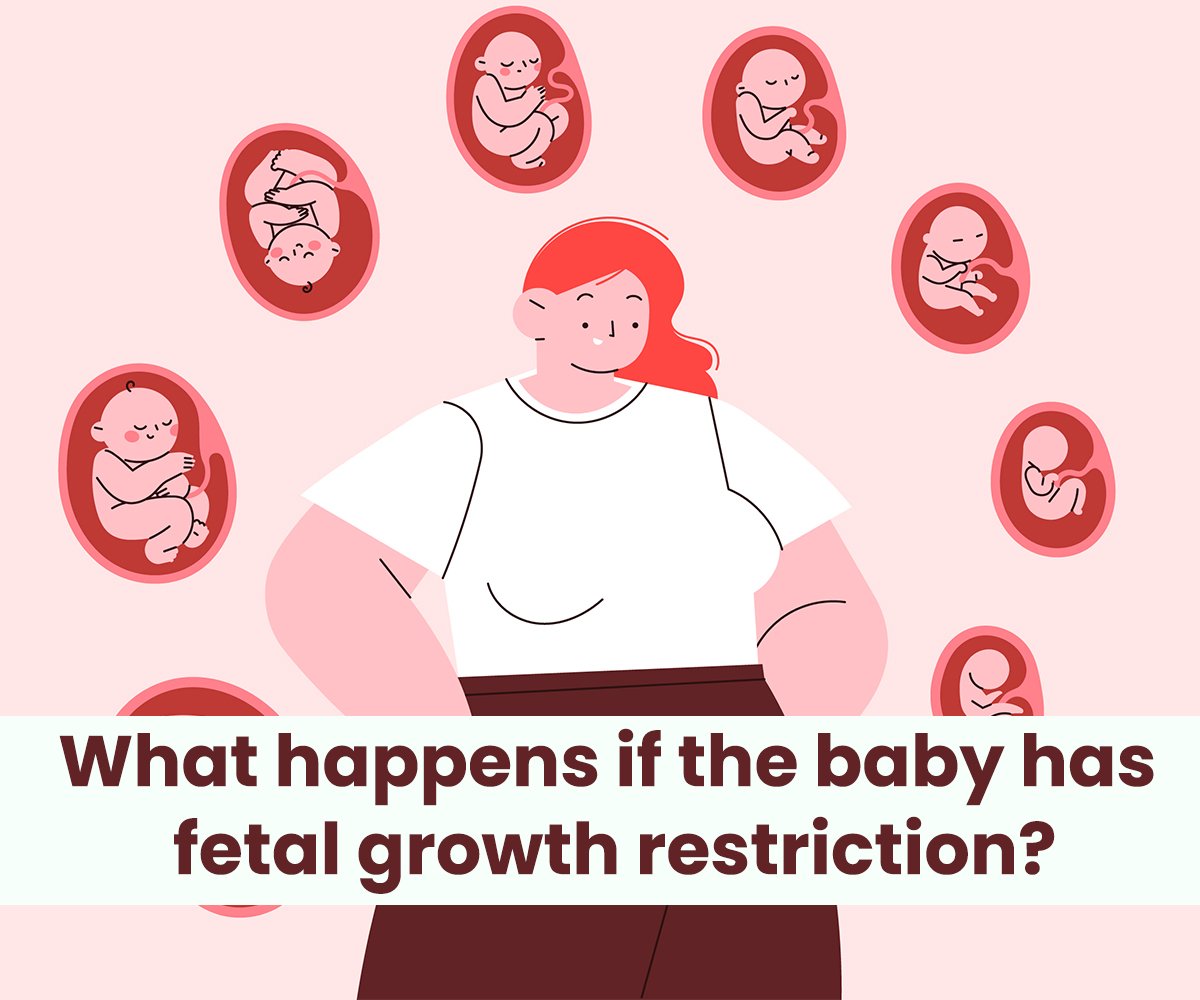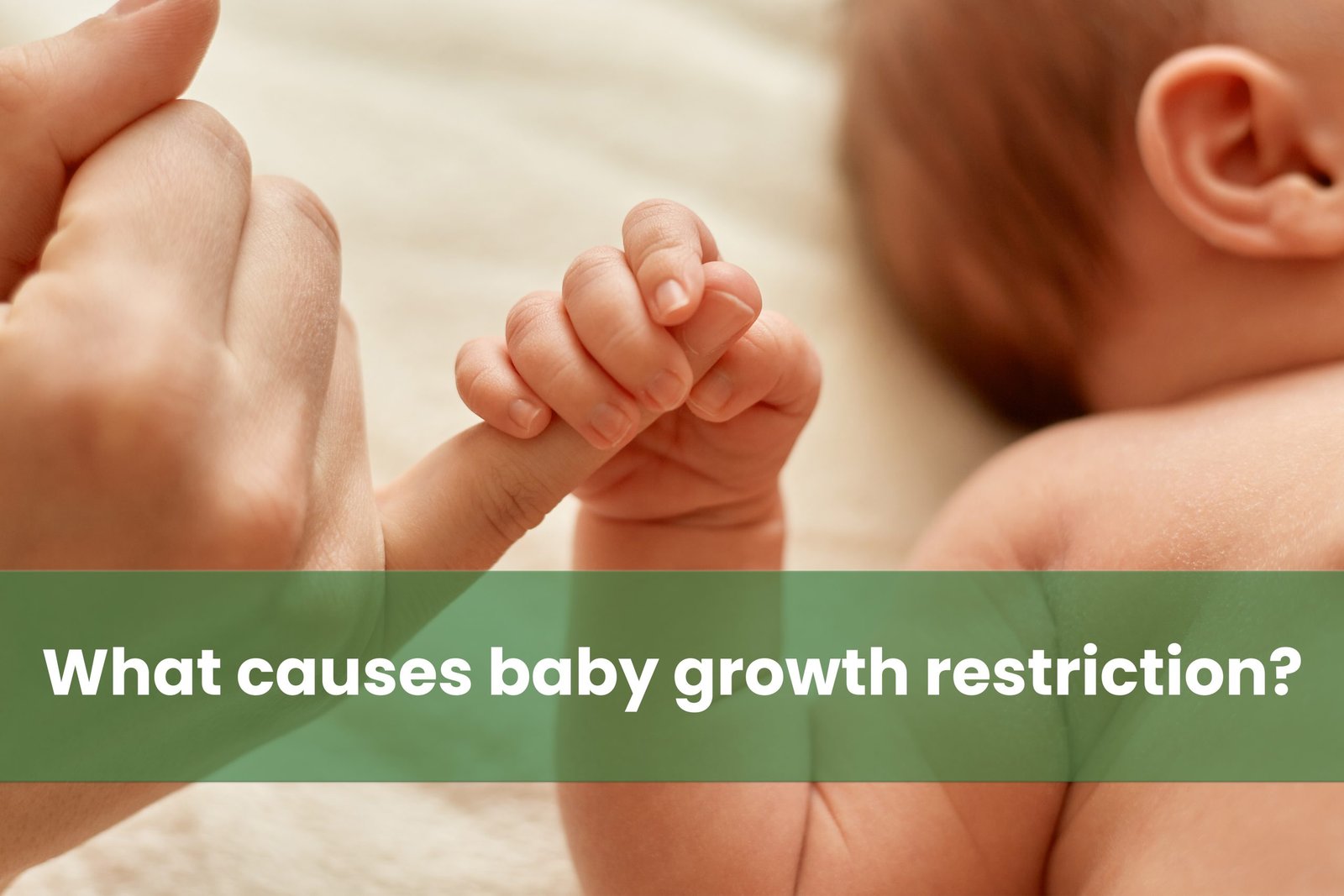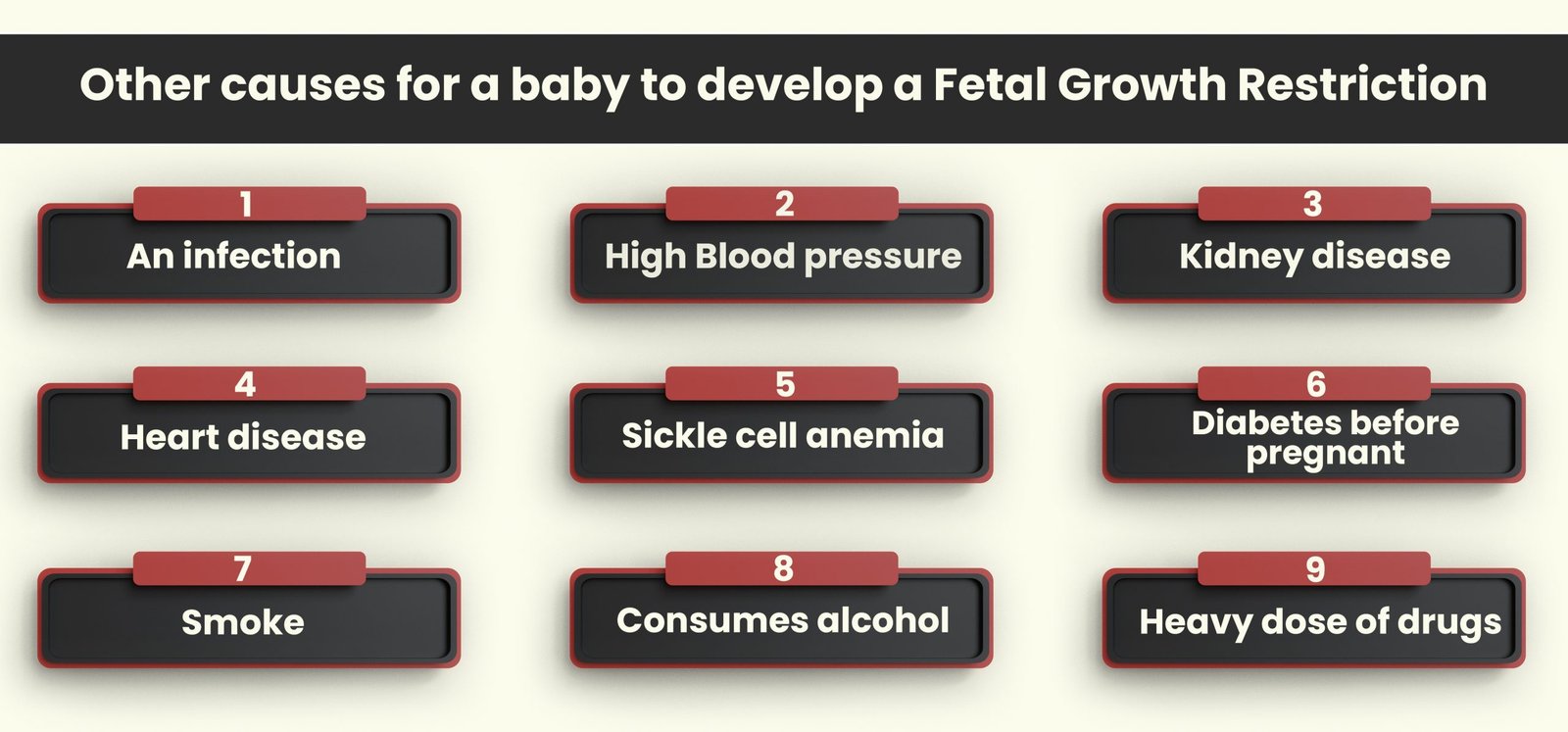Table of Contents
ToggleWhat does growth restriction mean when you are pregnant?
Fetal Growth Scan Restriction is a condition that occurs when a fetus is smaller than expected for the number of weeks of pregnancy (gestational age). It is commonly referred to as “estimated weight less than the 10th percentile.”
In other words, the infant weighs less than nine out of ten infants of the same gestational age. The term “small for gestational age” may be used to describe newborns with FGR.
Numerous short-term and long-term consequences that are linked to the illness might harm a person’s quality of life. This activity addresses fetal growth restriction assessment and management and emphasizes the need for an interprofessional team in treating patients with this disease.
What happens if the baby has fetal growth restriction?
If your baby is diagnosed with fetal growth restriction, the doctor’s advice is to carry on with the pregnancy as the majority of infants with FGR are born at least a few weeks early, and some require an emergency cesarean delivery (C-section).
Remarkably, in the first few years of their life, more than 90% of infants who are born undersized for their gestational age catch up to their peers. Your baby may encounter some preemie-related difficulties if you give birth early because of Fetal Growth Scan Restriction, but he will probably catch up to his full-term classmates before he is three.
What causes baby growth restriction?
FGR risk is influenced by a plethora of factors. Problems with the placenta or umbilical cord are examples of these. The placenta might not adhere properly. Or the umbilical cord may have restricted blood flow. FGR may result from factors affecting the mother and the infant.
FGR can also result from genetic abnormalities and birth malformations. Other causes for a baby to develop a Fetal Growth Restriction if the mother has the following
Is fetal growth restriction a high-risk pregnancy?
Fetal Growth Scan Restriction is possible during any pregnancy. However, several things like drinking alcohol, using drugs, or smoking increase the chance of FGR. FGR and other issues can be avoided with regular and early prenatal care, a good diet, and a gradual weight increase.
There is a higher chance of stillbirth or postpartum infant mortality. FGR has been connected to a higher risk of developing diabetes and heart disease later in life. FGR has been connected to other issues like learning impairments and behavioral issues.
Should I be worried about fetal growth restriction?
Typically, mild FGR doesn’t result in long-term issues. But you need to get concerned if the condition turns out to be serious because FGR can result in numerous severe consequences. You might have to have your unborn early and have to stay in the hospital.
Breathing difficulties, infections, and other issues could affect your infant. There could be deaths and stillbirths. Your child’s risk of developing heart and blood vessel issues will increase as they become older.
Treatment for Fetal Growth Scan Restriction
Keeping all of your prenatal appointments with your doctor is the best approach to helping your unborn child. Additionally, keep an eye on how frequently your infant kicks and moves.
Generally speaking, a baby who moves about a lot is healthy. A baby that moves infrequently or stops moving altogether can be ill. Call your doctor as soon as you discover your baby isn’t moving about as much.
Taking good care of your body will also benefit your baby. Make sure you consume the recommended quantity of calories for a pregnant lady while eating wholesome foods.
Sleep for at least eight hours each night. You should also take a nap for an hour or two in the afternoon. In addition to making you feel better, getting some sleep may also help your baby grow.
Also, Learn how pregnancy scans help track your baby’s growth — and how to read the reports
Chennai Women’s Clinic is now Jammi Scans
Deepthi
Dr. Deepthi Jammi (Director, Jammi Scans) is a qualified OB/GYN and Post-Doc in Maternal Fetal Medicine. As a pregnancy ultrasound expert, she is passionate about healthy pregnancies and works towards spreading awareness on the latest diagnostic options available for parents to choose from. Dr.Deepthi has received gold medals and awards in Fetal Medicine at international and national conferences, and has appeared in numerous prestigious regional magazines and TV interviews.








